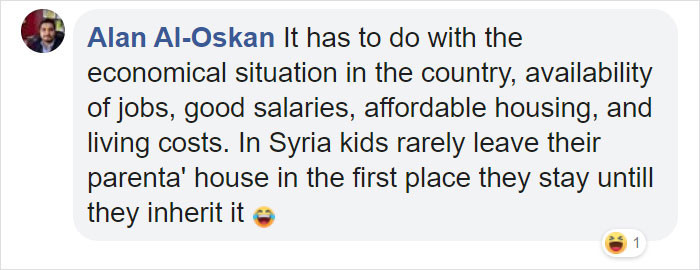Jay Leno Takes Legal Leap To Secure Mavis' Tomorrow In The Wake Of Her Ongoing Battle With Dementia

Western Europe, Australia, the USA, and many more developed and wealthy countries record that more and more young people live with their parents and move out much later than they used to
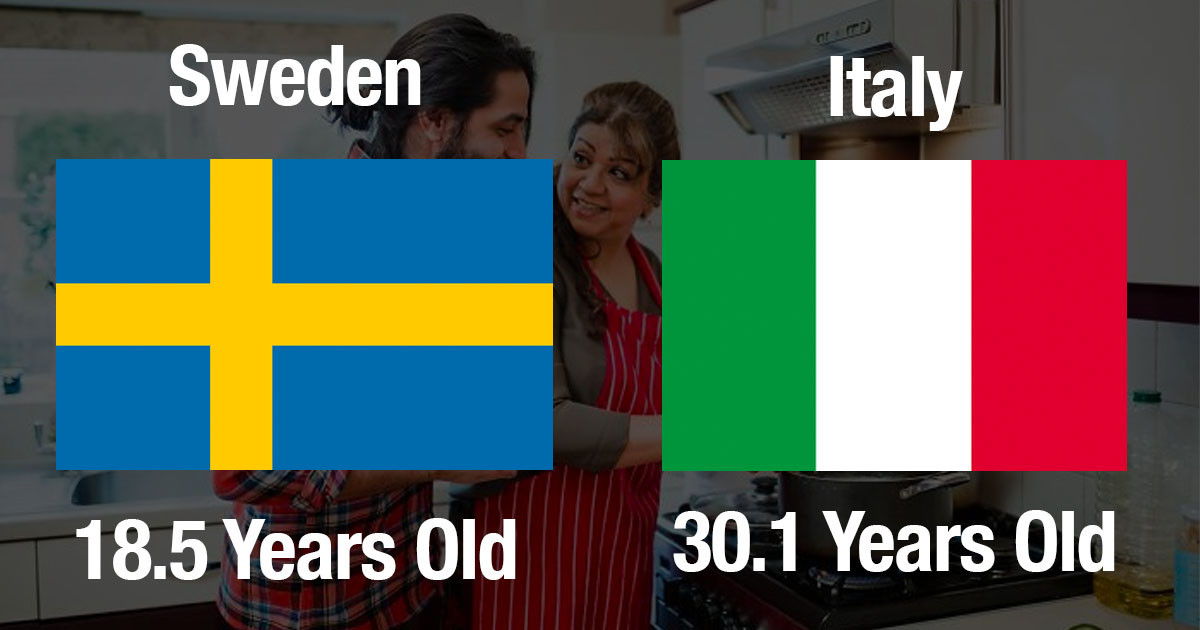
The moment when your child leaves your home and starts creating his own life and future is one of the joyous and heartbreaking moments in your life. But, according to recent studies, parents are waiting longer and longer for that moment.
Western Europe, Australia, the USA, and many more developed and wealthy countries record that more and more young people live with their parents and move out much later than they used to.
Andrea Breen, an Associate Professor at the University of Guelph, says that “economic necessity is a key reason” young adults stay with their parents for longer. “More and more families need to combine incomes in order to afford basic necessitates, including housing, food, healthcare, and access to education.
Economic necessity is driving young adults to stay in (or return to) their parents’ homes and it is also an important factor in many older adults moving in with their adult children (also an important related trend).”
 DGLimages
DGLimages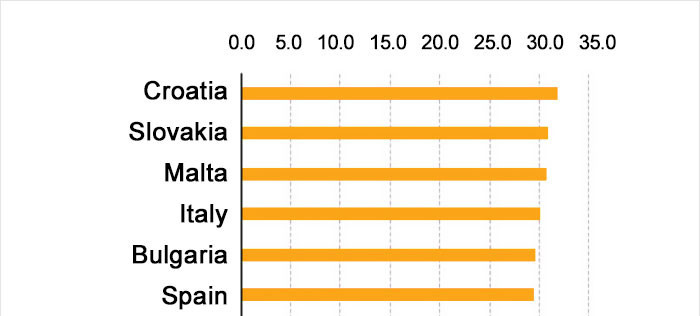 Eurostat
Eurostat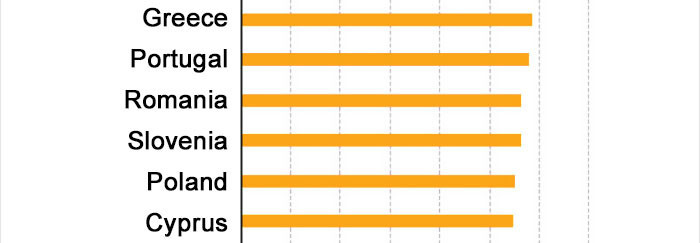 Eurostat
Eurostat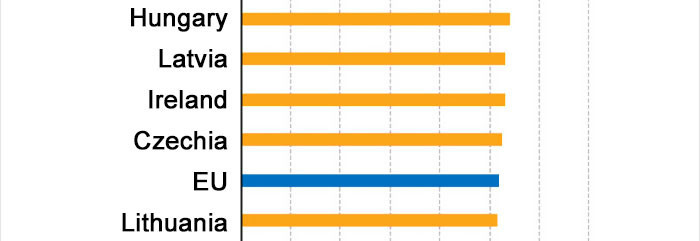 Eurostat
Eurostat Eurostat
Eurostat Eurostat
EurostatEurostat’s 2018 data reveals that the average age in the European Union when young people leave their family homes is over 25 years old. In 2017, Eurostat indicated that 35.3% of 25 to 34-year-old men were still living at their parents’ homes, while 21.7% of females of the same age group live with their parents.
The lowest percentage of young adults living with their parents was discovered in Denmark (3.2%), Finland (4.7%), and Sweden (6%). The highest percentage was in Croatia (59.7%), Slovakia (57%), and Greece (56.3%).
Statista’s data for 2018 indicates that the typical age when “young adults” from Montenegro left their parents’ home was 32.8. Croatians hold second place with an average age of 31.8. Slovakians are in third place with 30.9. The Italians are next with 30.1.
“Another key reason is family caregiving needs,” Breen explained why young people are leaving their parents’ homes later and later. “Young people in Canada, Australia, the US, Britain (and in other parts of the world) are actively engaged in providing daily care for family members (including siblings, parents, grandparents, and other family members).”
“Family members are struggling to fill the gaps in healthcare and social welfare systems that do not provide adequate care and support for people with chronic illness, disabilities, mental health struggles, and substance abuse disorders.
This is particularly important as populations age. Much of the care for grandparents is now provided by grandchildren, whose contributions to family life may be financial and may also involve caregiving and other forms of household labor.”
“And a third reason is culture. Individualistic notions of people growing up and “going out on their own” are not the norm in many cultures, which emphasize that elders should be looked after by family members and that family well-being is a collective responsibility.
This is challenging individualistic notions that the ultimate aim of adult life is to be independent and able to “go it alone”. Immigration trends and movements to recognize and value Indigenous cultures (in Canada, the US, and Australia) are also pieces of this puzzle.”
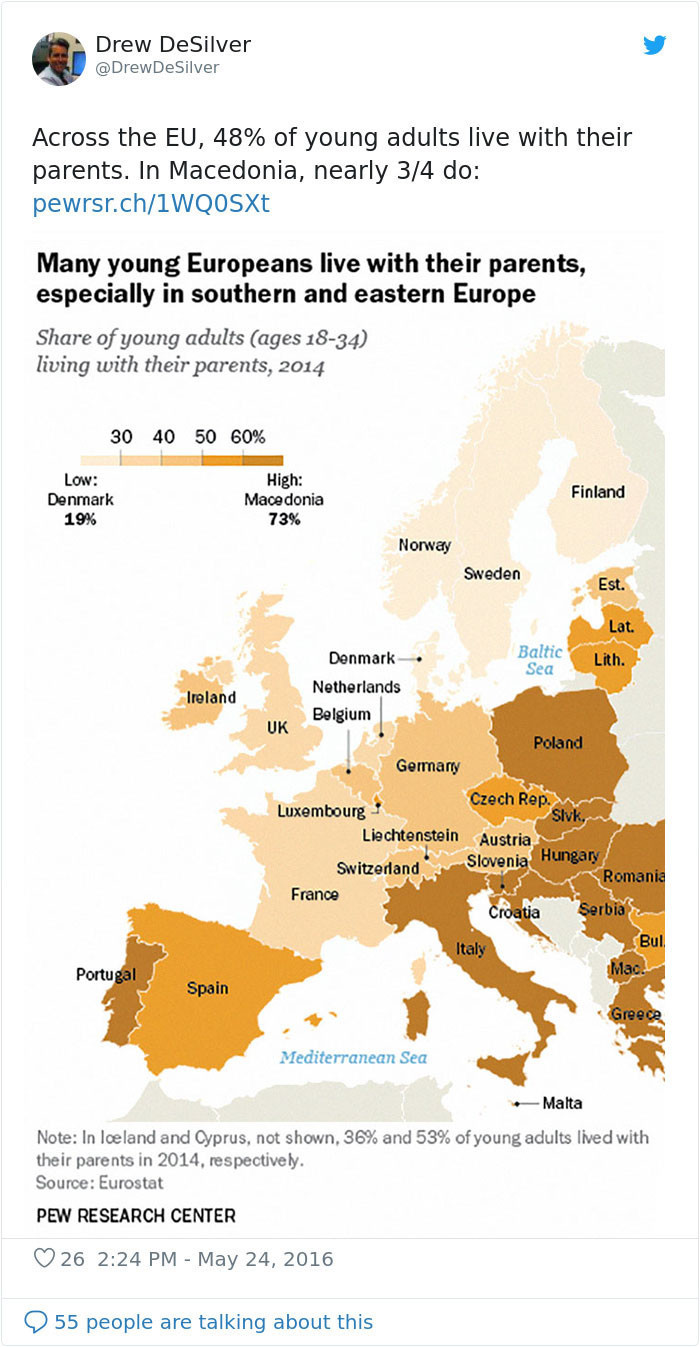 DrewDeSilver
DrewDeSilver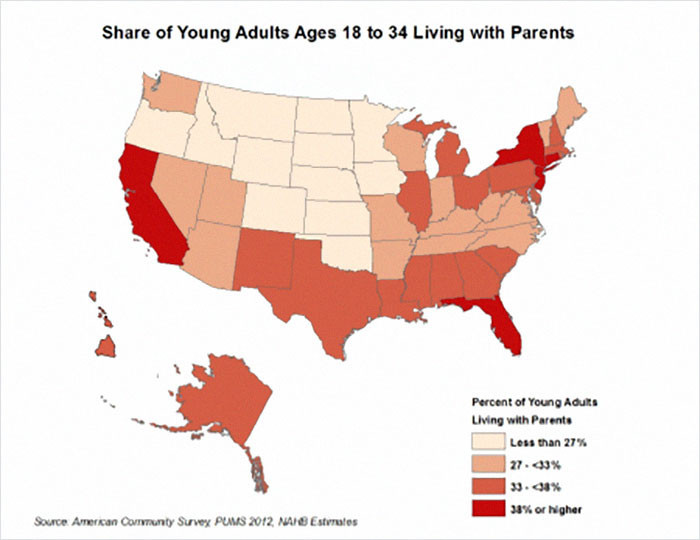 eyeonhousing
eyeonhousingBreen analyzed positive and negative effects of living in parents’ home: “It really depends on the family.”
“Recently I did some interviews with CBC Canada after news that an upstate NY couple won a lawsuit to kick their 30-year-old son out of the house. Obviously, that seems like an extreme example of family conflict related to an (adult) child living with his parents too long.
While the headline is an attention-grabber, the reality is that we do not know what that family may have been struggling with behind the scenes (e.g. mental health issues? addiction?).”
“It is important to highlight that the trend of extended families living together is in part a symptom of the terrible financial struggles that many families face. Many people have no choice but to live with their parents (or their adult children) in order to make ends meet.
On the other hand, for some families, these changes might also create opportunities for stronger connections to family and culture and benefits to mental health and well-being.”
An article in Guardian reveals that the Civitas thinktank observed that the number of young adults who choose to live with their moms and dads has grown over the last two decades. It was 19.48% in 1997, and it climbed to 25.91% by 2017.
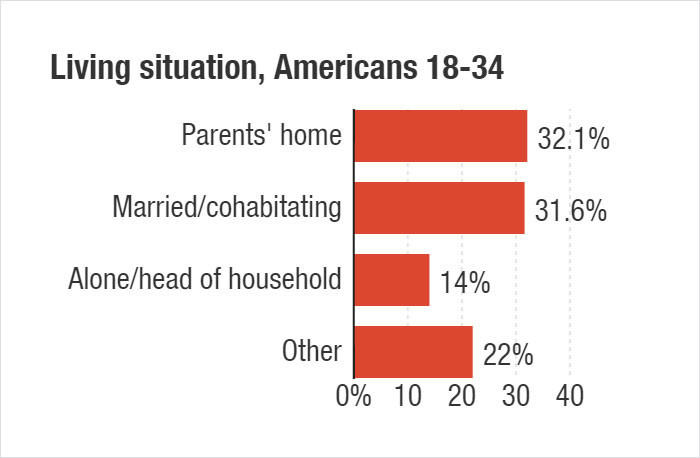 Image credits: Pew Research Center/NPR
Image credits: Pew Research Center/NPR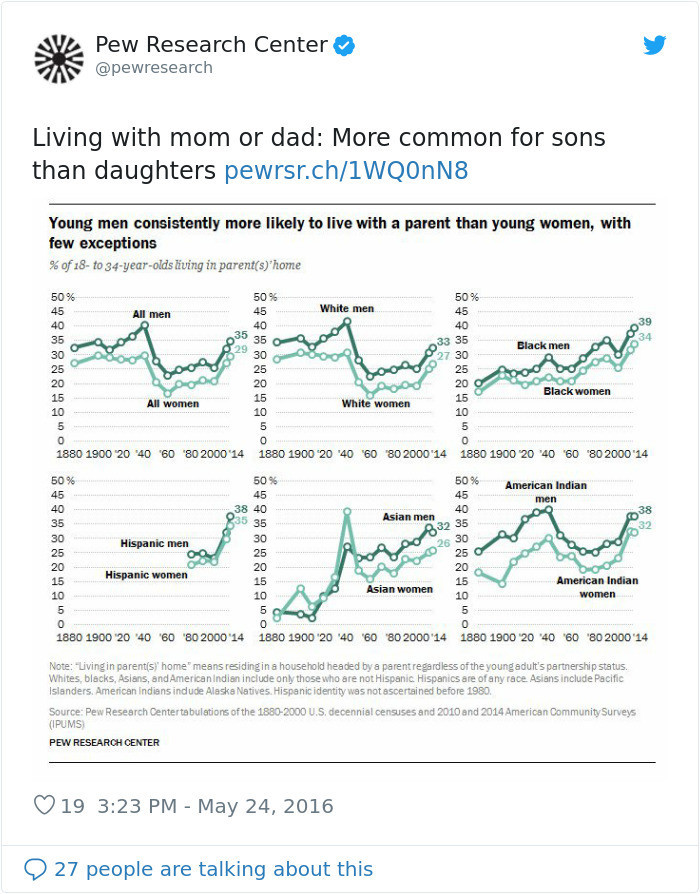 Pew Research Center
Pew Research CenterThe situation is similar in the United States. NBC informs that according to the Census data, 25% of Californians between 25 and 33 years of age are still living with their parents. Things are no different in Australia, where 43 percent of 20 to 24-year olds haven’t moved out yet, compared to 36 percent back in 1981.
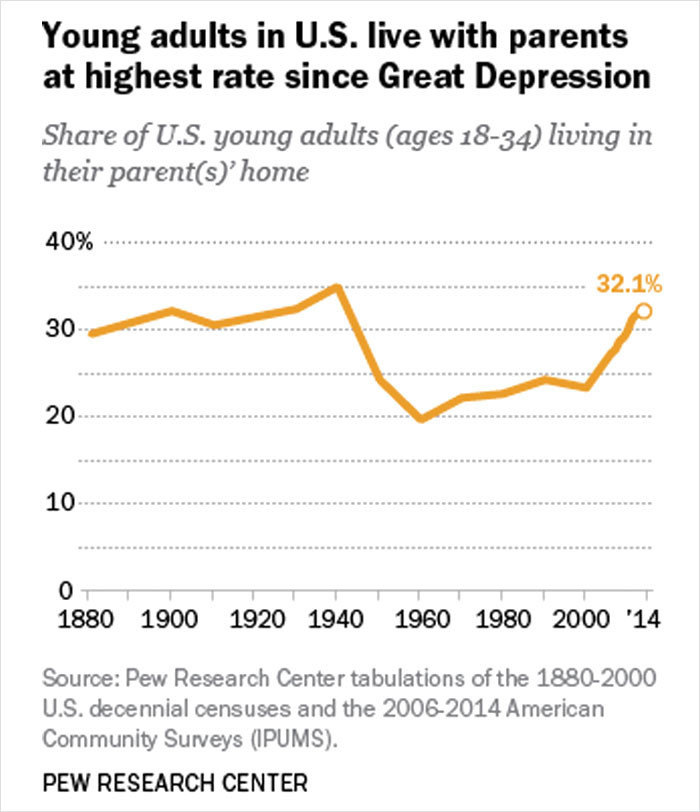 Pew Research Cente
Pew Research CenteThe Economist writes that the situation in the UK is not great: home prices have doubled over the last 20 years, and young people can’t afford their own homes. Buying a house or an apartment was much cheaper a generation ago.
Curbed says that in the USA, in 1959, a teacher would make $5,200 a year. An average house in California had a price tag of $12,788. That’s an income of $44,493 and a house price of $109,419 in today’s money. Now, teachers in San Francisco $72,340 per year, and a house in the city costs 1.61 million dollars.
Of course, there are also other reasons why people are moving out later in life. Getting into serious relationships now happens later and later in life. People are more focused on their careers.





